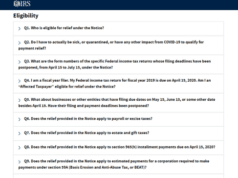
Direct deposit has changed how people initiate payments. It is a payment method that involves moving funds electronically to a checking account. Direct deposit replaces the conventional way of issuing checks. However, there are critical things you need to know about this payment method before using it.
One of the questions is what time does direct deposit hit?
The time a direct deposit hits an account depends on the financial institution involved. Things like the posting schedule, bank procedure, time a transaction reflects on the bank’s computers and bank size, can have an impact. They determine when the bank will post your direct deposit. Some banks post it in real-time, while others do so at the end of the business day.
Continue reading to know how direct deposit works!
How Direct Deposit Works
A direct deposit is an automatic way of receiving payment. As soon as the money hits your bank account, your balance increases automatically. Unlike cash and check, you don’t have to lift a finger for funds to reflect in your account, with direct deposit.
It works via a medium called ACH. ACH stands for Automated Clearing House. It is a system in which one can automatically and electronically transfer money from one bank to another. Whenever you set up a direct deposit, you are acknowledging that your payments should use the ACH channel.
Uses Of Direct Deposit
The direct deposit payment method has several uses. One of the most common applications is the payroll deposit.
As an employer, you can use direct deposit to pay your employees. In this case, there’s no need to set up payments and also track them manually. Processing payments for employees manually may be time-consuming and tasking.
The direct deposit payment method makes things easier for employers. Processing payment is effortless and less time-consuming.
Besides the payment of employees, direct deposit is also useful for social security payment. In reality, it is a common way of receiving social security. Beneficiaries of the scheme receive their money automatically into their accounts.
With direct deposit, you can pay bills and taxes electronically. Your tax refunds will also reflect in your account automatically the moment the deposit arrives. That’s why government agencies prefer paying via direct deposit.
How To Set Up A Direct Deposit As An Employer
Creating a direct deposit is quick and straightforward. All you need is to provide the required information. These include your bank routing number, the recipient’s account number, account type, and bank address.
How To Set Up A Direct Deposit As An Employee
As an employee, you may be required to speak with the HR department. The HR department can help you set it up. It’s their duty. After going through the pros and cons of setting up the direct deposit, an employee may be required to provide some vital information. These include the name of the employee, financial institution, checking account number, and routing number. The employee can also state the amount that should go into each of the submitted accounts. It is essential for people operating multiple accounts.
How To Make Payments With Direct Deposit
The employer sends an electronic instruction to the payee’s (employee’s) financial institution to credit the payee’s account with a certain amount. Once this instruction is acknowledged, the employee’s account will be credited automatically. The said amount will be removed from the employer’s account.
How Do Banks Benefit From The Direct Deposit?
A direct deposit is beneficial to banks in some ways. Once set up, the bank is sure to receive a steady inflow of payments from the said employer. Also, the use of direct deposit can make customers feel more attached to the bank.
Another highlighted feature about the direct deposit is that it reduces the workload for banks. Since the payments are electronic, it invariably means the bank staff doesn’t have much to do.
The regular income that flows into the bank is equally essential. It can help to improve the bank’s financial books.
Making Direct Deposits With A Credit Union Account
Credit unions are a popular option for financial services like savings accounts, loans and checking accounts. The reason is that they offer competitive interest rates.
The procedure for joining a federal credit union ny is simple unless one doesn’t match the field of membership. If you do, then the process will be much easier for you.
So, what are the steps to join a credit union? The first is to meet the eligibility requirement. After that, you need to make a small deposit and have your account created. Having your employer as a member of your chosen credit union can also make joining a credit union hassle-free.
After opening your credit union account, you can use it to set up your direct deposit. You will receive your remunerations into this account.
Setting up early direct deposit: What you need to know
Some banks offer this payment service to customers. It entails the early payment of remunerations to employees. It usually occurs two days earlier than the actual payday. The early direct deposit is a service that banks provide to customers for free. But not all banks offer this service.
Costs associated with direct deposits
There are charges associated with setting up direct deposits for businesses. First, businesses are required to pay a certain amount for direct deposit implementation. The service charge, however, varies from one financial institution to another.
Also, an employer pays a certain amount whenever the funds transferred enters the checking account. The fee varies from one financial institution to another. Banks mostly charges per transaction carried out on a checking account.
Again, some banks charge non-customers when drawing checks. To avoid these extra costs, an employer may decide to bear the charges on behalf of his employees. It is also wise for employers to learn about the terms and conditions tied to the service, including the fees the financial institution in question charges.
Advantages Of Direct Deposit
The use of direct deposit as a service is of immense benefit to banks, employers, and employees. As an employee, when you receive a check, you have to visit the financial institution in person to cash out the check. Sometimes, you may spend hours queuing up in the bank, wasting productive hours.
The use of direct deposit takes care of this hitch, especially when you are indisposed. Wherever you are, you are sure to get your money. Also, there is no risk of losing one’s check as money is sent directly to the employee’s account.
Employees also gain better and faster access to their funds. They are also able to control the way funds move into their accounts. Another advantage is that employees are sure of having funds sent to their accounts at specified dates of the month.
The service makes payroll deposits faster and devoid of the stress related to writing checks. Furthermore, employees can easily access their funds at any point in time, and wherever they are.
Disadvantages Of Direct Deposit
There are cases where an employee wants to intend to move to another financial institution. It could happen when the bank is unreliable. In this case, the employee in question has to follow specific procedures.
The procedure involves notifying the employer or, at times, the Social Security Administration if the payment of payee’s social security benefits gets to the payee directly. To forestall this, one has to ensure the use of a financial institution that can guarantee satisfactory services.
Another issue that may arise is the case of an overdraft on the checking account. When this happens, the amount deposited in the account involved will have to cover the overdrawn amount. However, this is avoidable by ensuring there is no pending overdraft on the account used.
Also, when there is a standing order on a checking account to pay some debts, the account is automatically debited since they have your account details.
Is Direct Deposit A Safer Option?
Before choosing this payment method, business owners should carefully study the pros and cons of using the direct deposit against the use of paychecks. The use of a paper check is time-consuming. Also, checks could be misplaced, and it is stressful for all the parties involved – the employer, financial institution, and the employee. On the other hand, checks give employers control as well as privacy. The choice on which option to use depends solely on the employer after considering the factors involved.
Conclusion
Direct deposits have become the norm in the present digital world due to the improvements the service has brought to businesses and life in general. Technology advancement has also made the traditional way of making payments obsolete. The use of direct deposit has been instrumental to the birth of several financial services and products offered by financial institutions. These products and services are also tailored to meet the numerous demands of customers.
However, there is a need for individuals and corporate organizations to conduct an in-depth research on the financial institution of choice before setting up a direct deposit.
You May Like These Articles As Well:
What Trucking Companies Do Hair Drug Testing?








